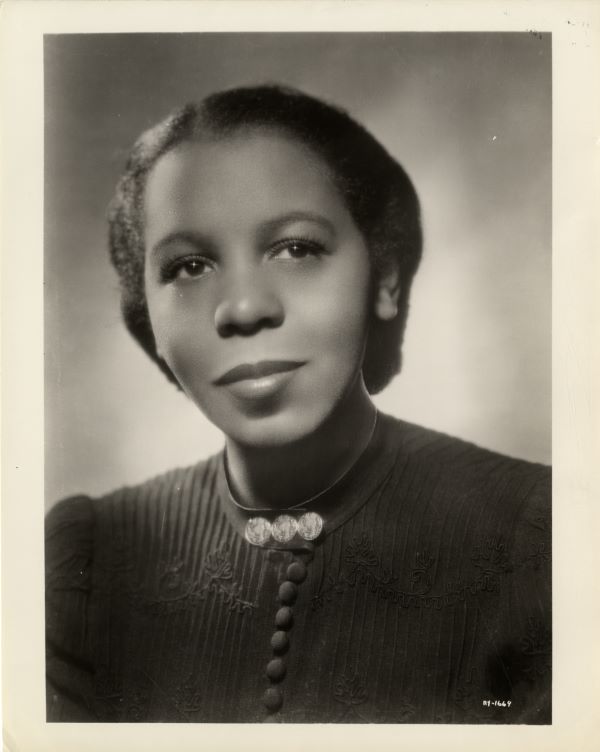
For the week of Monday, February 13, 2023
On February 19, 1945, Portia White made her debut musical performance in Montréal at the Ritz-Carleton hotel. The first African Canadian woman to win international acclaim, she opened doors for artists who followed and inspired the creation of poetry, books, plays, and films about her life and career.
White was born on June 24, 1911, in Truro, Nova Scotia, the third of 13 children to parents William Andrew White and Izie Dora. White and her siblings inherited a passion for music from their mother, who was a talented pianist and soprano. At six years old, Portia White joined the choir her mother directed at the African Baptist Church, where the family worshipped. She recalled always wanting to perform on a concert stage, but it would take some time for her dreams to come true.
After completing her schooling, White worked as a primary school teacher in Africville, Nova Scotia. In her spare time, she performed at local churches, like the Cornwallis Street Baptist Church, where she eventually became the choir director. She also competed and won the Helen Campbell Kennedy Cup at the Nova Scotia Music Festival in 1935, 1937, and 1938. In recognition of her achievement, contest organizers decided to award her the cup permanently.
Her success caught the attention of the Halifax Ladies Musical Club, which offered her financial support and training under Dr. Ernesto Vinci, a German-born opera singer, music teacher, and medical doctor. To highlight her beautiful lower register, Vinci advised White to sing as a contralto, instead of a soprano. In 1940, White performed as a member of the Halifax Ladies choir directed by Vinci.
In 1941, White made her breakthrough solo performance at the Eaton’s 7th Floor Auditorium and Round Room in Toronto, Ontario. The performance, organized by Dr. Edith Read, principal of Toronto’s historic Branksome Hall, allowed White to leave her teaching job to pursue her singing career. White dominated concert stages throughout North America, including those in New York City and Montréal. At the time, Montréal had an active jazz music scene pioneered by the Black community. Black artists, particularly jazz musicians, faced significant barriers that limited their opportunities to perform. White’s performance at the prestigious Ritz Carleton ballroom was a rare occurrence, breaking segregationist norms.
In 1946, White toured South and Central America. From Panamanians, she received a gold medal; in the Andes, she sang above the clouds. But the tour took its toll and a throat operation limited concert career. After she officially retired in 1950, she became a voice and music teacher at Branksome Hall, training such stage-and-screen legends as Lorne Greene and Dinah Christie.